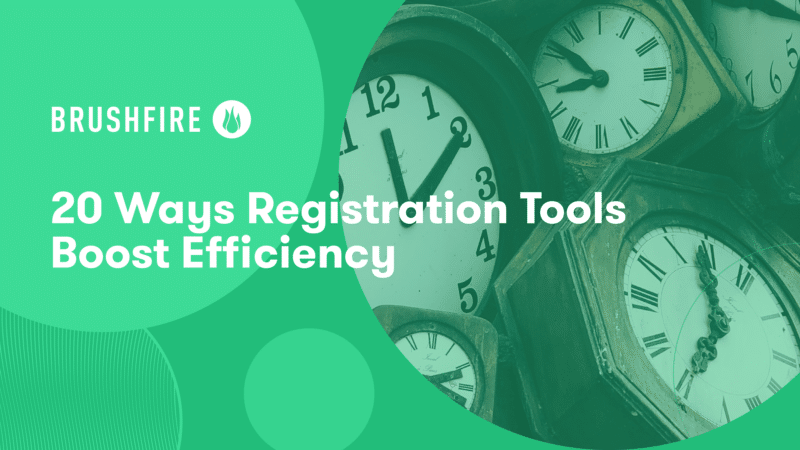Improve Your Church Events One Attendee at a Time
People First: Brushfrie’s partnership with churches for a better event experience.
How To Leverage Success with Streamlined Event Registration

You strive to plan successful events for your organization while also maximizing your time and resources. As demand grows for well-organized and innovative events, event planners face more pressure than ever. From researching venues and coordinating vendors to managing budgets and tracking the data, the process of event planning can be time-consuming and complex.
It’s no wonder the best event planners are always looking for tools and strategies to help them save time and accomplish more. Efficient event planning tools and technologies are essential, helping event planners meet goals, minimize errors, and focus on what matters most: delivering a successful event.
Let’s take a closer look at what effective event planning looks like, plus 20 ways you can save time — and accomplish more — with the help of the right event registration tool.
The amount of time it takes to plan an event for an organization depends on various factors, such as the size and complexity of the event, the number of attendees, budget constraints, and the availability of resources. In general, it is recommended to start planning an event at least 6-12 months in advance to ensure a smooth and successful execution.
Your planning process might include managing several varying details, like:
For smaller events, such as team meetings or small-scale networking events, the planning process might only take a few weeks or months. However, larger events — such as conferences or corporate retreats — usually require a much longer planning period, often taking up to a year or more to plan and execute effectively.
It takes specific knowledge, training, and expertise to successfully plan and execute events. Event planners need to have strong organizational and time-management skills, attention to detail, and the ability to think creatively and problem-solve under pressure. They also need to have excellent communication and interpersonal skills to collaborate effectively with vendors, suppliers, and attendees. Additionally, event planners must be able to manage budgets, negotiate contracts, and stay up-to-date on industry trends and best practices.
A successful event planner is someone who can balance these skills and traits to create memorable events that meet the goals of their organization. Utilizing the right event planning tools will give you a huge advantage, helping you save time and increase attendee engagement.
There are many ways event registration tools can help you streamline the planning process and improve your event management capabilities. Here are 20 time-saving benefits you can experience by using the right ticketing and registration platform.
Get in touch with Brushfire to see how we can help you save even more time with personalized attendee support, building an Event App, or custom seating charts!
Don’t let the details of planning swamp your event’s potential.
If your event registration process is slow or lacks transparency, it’s time to make a change. Brushfire offers crucial features to help you save time and meet key objectives, like customizable registration pages, automated confirmation emails, ticket scanning, attendee tracking, and robust reporting. Use Brushfire to adjust your strategies according to real-time insights and data.
Are you ready to benefit from a time-saving tool designed for event planners? Watch this quick demo to learn more about how you can streamline your strategies and provide a smoother experience for your attendees.